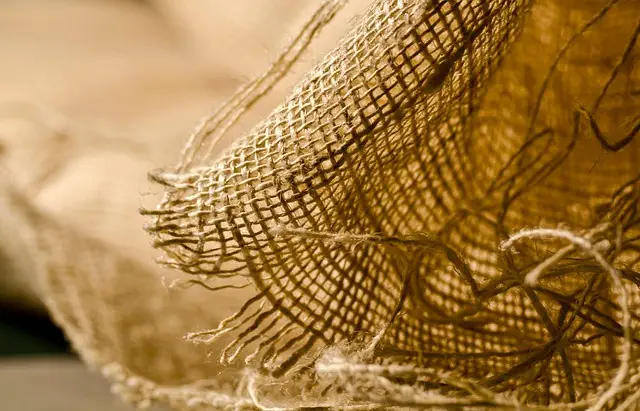Muscle soreness, especially delayed onset muscle soreness (DOMS), is common post-exercise, peaking 24-72 hours after intense workouts due to microscopic damage. Kratom, derived from Mitragyna speciosa, offers a natural pain reliever for muscle soreness without side effects like hair loss experienced with synthetic alternatives. Its active compounds mitragynine and 7-hydroxymitragynine reduce inflammation and relax muscles. While some users report temporary thinning, studies show minimal impact on follicles, and kratom's anti-inflammatory properties may promote hair growth. To mitigate kratom-related hair loss, maintain hydration, follow a nutritious diet, and consult healthcare professionals.
Muscle soreness can be a debilitating condition, but natural remedies offer relief without harsh side effects. This article explores an emerging solution: kratom. We’ll delve into the science behind muscle soreness and its causes, uncovering how this ancient herb could provide much-needed comfort. Additionally, we address common concerns, including potential hair loss, and discuss whether kratom can help regrow hair. Discover a holistic approach to healing with kratom, a natural remedy gaining recognition for its soothing benefits.
- Understanding Muscle Soreness and Its Causes
- Kratom as a Potential Solution for Sore Muscles
- Addressing Concerns: Hair Loss and Regrowth with Kratom Use
Understanding Muscle Soreness and Its Causes

Muscle soreness, often described as delayed onset muscle soreness (DOMS), is a common issue that arises after strenuous physical activity or exercise. It’s characterized by a muscle ache or pain that typically peaks 24-72 hours post-exercise and can last for several days. This discomfort is a natural response of the body to the demands placed on its muscular system, resulting from microscopic damage to muscle fibers during intense workouts.
Various factors contribute to muscle soreness, including eccentric exercise (where muscles lengthen while under tension), inadequate warm-up or cool-down routines, and improper form during exercises. Interestingly, some research also suggests that certain substances, like kratom—known for its diverse medicinal properties—could potentially play a role in soothing muscle aches. While kratom is often studied for its pain-relieving effects, including mitigating chronic pain, its impact on acute muscle soreness, such as post-workout discomfort, warrants further exploration, especially considering the growing interest in natural remedies and its potential to prevent or alleviate symptoms without leading to hair loss, unlike some synthetic alternatives.
Kratom as a Potential Solution for Sore Muscles

Kratom, a natural herb derived from the Mitragyna speciosa plant, has been gaining attention for its potential therapeutic benefits, including muscle soreness relief. Many individuals who suffer from chronic or acute muscle pain turn to kratom as a natural alternative to over-the-counter painkillers. The primary active compounds in kratom, known as mitragynine and 7-hydroxymitragynine, have shown promising results in reducing inflammation and relaxing muscles, thereby alleviating discomfort.
Unlike some conventional medications that may cause side effects like kratom hair loss, this herb offers a gentle yet effective approach to managing muscle soreness. Its ability to interact with opioid receptors in the body could explain its pain-relieving properties, providing a potential game-changer for folks seeking relief without relying heavily on synthetic drugs. As research continues to explore kratom’s benefits, especially in terms of promoting hair growth and reversing any adverse effects, it emerges as a fascinating option for natural muscle soreness treatment.
Addressing Concerns: Hair Loss and Regrowth with Kratom Use

Kratom, a natural herb derived from the Mitragyna speciosa plant, has gained popularity for its various medicinal properties, including pain relief and muscle soreness reduction. However, one common concern among users is the potential side effect of hair loss. While some people have reported experiencing temporary thinning or shedding of hair while taking kratom, it’s important to remember that this isn’t universally experienced. Studies suggest that kratom’s effect on hair follicles is minimal, and many users report no significant changes in their hair growth patterns.
In terms of hair regrowth, there is evidence to suggest that kratom’s anti-inflammatory properties might even promote a healthier scalp environment, fostering conditions conducive to hair growth. Additionally, the herb’s ability to alleviate pain and reduce stress could indirectly contribute to better overall health, which is known to support hair growth. For those concerned about kratom hair loss, maintaining proper hydration, adopting a balanced diet rich in nutrients essential for hair health, and consulting healthcare professionals can help address these issues while utilizing kratom for muscle soreness relief.
Kratom has shown promise as a natural remedy for muscle soreness, offering a potential alternative to traditional pain management methods. While more research is needed, especially regarding its long-term effects and optimal dosage, many users report significant relief from kratom’s analgesic properties. However, it’s essential to approach Kratom use with caution, particularly concerning concerns about hair loss. Some users have experienced temporary hair thinning, but several studies suggest that regular use can promote hair regrowth. Thus, understanding the benefits and risks of Kratom for muscle soreness and being aware of potential side effects like hair loss and regrowth is crucial before incorporating it into your wellness routine.






